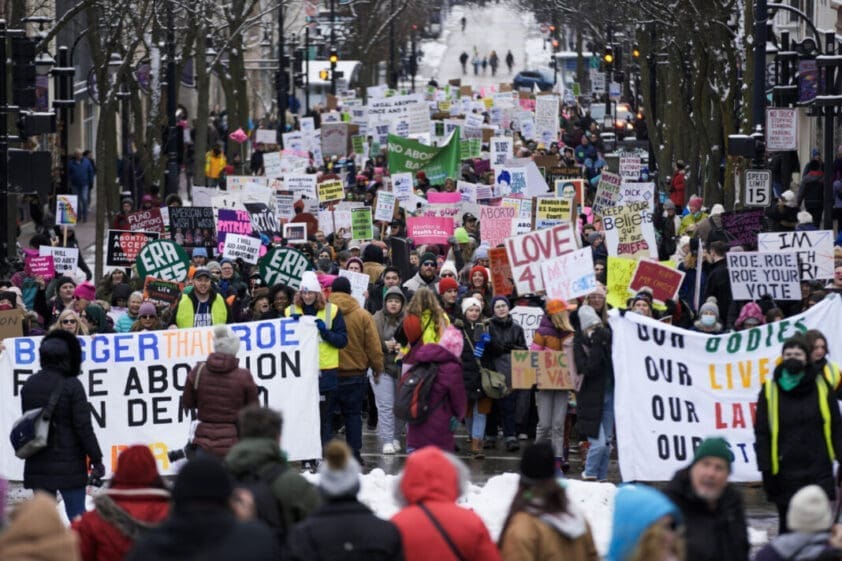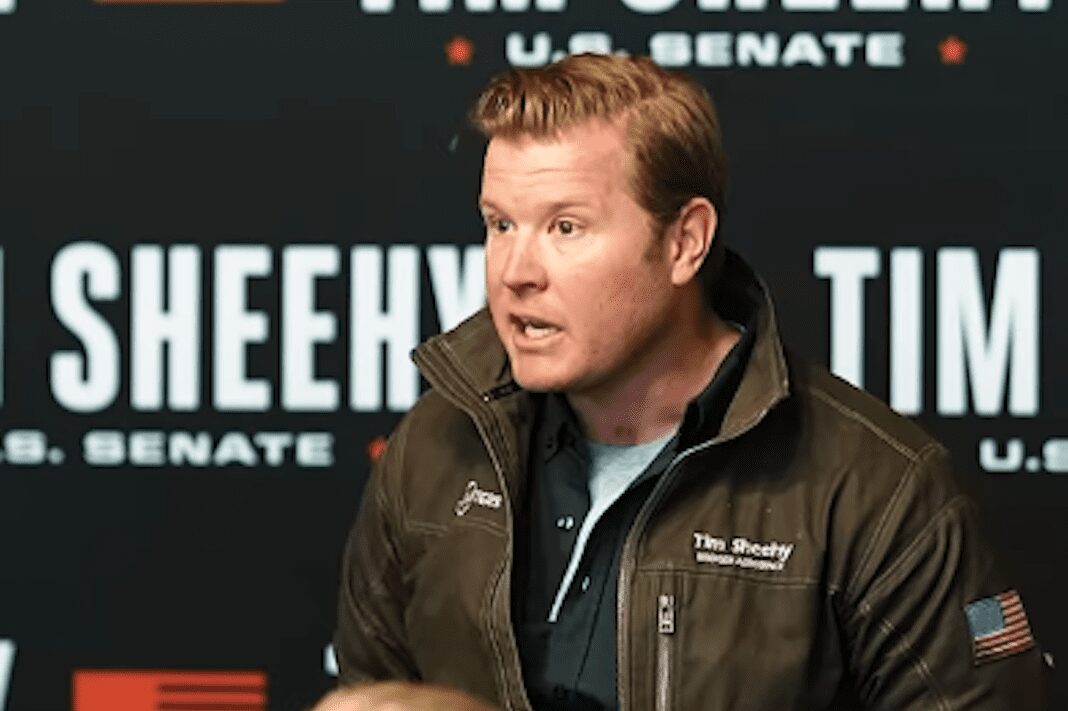Montana doctor fights for ballot measure to protect reproductive rights
‘People are really fired up about making sure that abortion access is protected in Montana,’ says Dr. Sam Dickman of Planned Parenthood Montana.

One of the reasons Dr. Samuel Dickman moved to Texas after finishing his medical training was that he wanted to offer abortion care in a state with fewer providers. He eventually settled in San Antonio.
But things changed for Dickman after the passage and enactment in 2021 of Texas Senate Bill 8, a measure that made abortion illegal in Texas as early as five weeks of pregnancy. Dickman told the Montana Independent that from oral arguments in Dobbs v. Jackson Women’s Health Organization at the end of that year it became clear to him that the U.S. Supreme Court was going to overturn Roe v. Wade, and the Texas Constitution did not contain protections for reproductive rights. Dickman and his partner decided it was time to move on. They headed for Montana.
Today the Harvard Medical School graduate works as the chief medical officer at Planned Parenthood Montana, seeing patients mostly in Helena. He is now actively working to protect reproductive rights in the state.
On behalf of a coalition called Montanans Securing Reproductive Rights, Dickman submitted a proposed ballot measure in November 2023 that would put up for a vote an amendment to the state Constitution that would, according to the official Montana elections website, “expressly provide a right to make and carry out decisions about one’s own pregnancy, including the right to abortion. It would prohibit the government from denying or burdening the right to abortion before fetal viability. It would also prohibit the government from denying or burdening access to an abortion when a treating healthcare professional determines it is medically indicated to protect the pregnant patient’s life or health.”
For months, Dickman and Montanans Securing Reproductive Rights, which includes Planned Parenthood Advocates of Montana and the ACLU of Montana, fought legal maneuvers by Republicans to derail the ballot proposal. In January 2024, Montana Attorney General Austin Knudsen blocked it, claiming its language was “legally insufficient.” In March, the group sought a declaratory judgment against Knudsen’s block, and the Montana Supreme Court complied.
By April 5, the path was cleared for the group to take petitions out to the public, and gather the required 60,000 signatures to put the proposed initiative, designated C1-128, on the November ballot.
“People are really fired up about me making sure that abortion access is protected in Montana,” Dickman said. “Montana has this long history of, whether you want to call it libertarianism, or just the idea that the government should stay out of people’s personal business.”
“I think a lot of people feel like, they see what’s going on in Texas, they see what’s going on in Florida and Arizona right now, and they say, Look, we’re really, really enthusiastic to be gathering signatures and moving forward with the ballot initiatives,” Dickman said.
Dickman spoke to a group of abortion rights advocates recently and talked about the suffering his patients in Texas endured under the five-week ban: “I saw patients travel hundreds of miles to get abortions out of state. I saw patients who had no choice but to continue unwanted pregnancies, even pregnancies that resulted from sexual assault.”
Dickman says that the abortion landscape in Montana is unique due to the large swaths of less-populated rural areas, something that can be a huge determinant of access to not just abortion, but all kinds of medical care.
“We and other providers in the state have telemedicine-based abortion care. We know that large studies, including some done at UCSF [the University of California San Francisco], have shown that that kind of access to medication abortion is very safe and very effective, especially for people living in rural areas, people without reliable forms of transportation, but also people who need to keep their abortion secret from family members or anyone else,” Dickman said.
Dickman added that access to medical care, including reproductive and abortion care, is particularly difficult for the large number of Indigenous communities in Montana, often located on rural reservations.
“The protections of whether it’s telemedicine-based abortion care, or whether it’s ensuring that there are abortion funds available to help people with things like travel, hotel stays if they do need to travel,” Dickman said. “I think that is important for all Montanans, but I think it’s especially important for the large Indigenous community in the state.”



